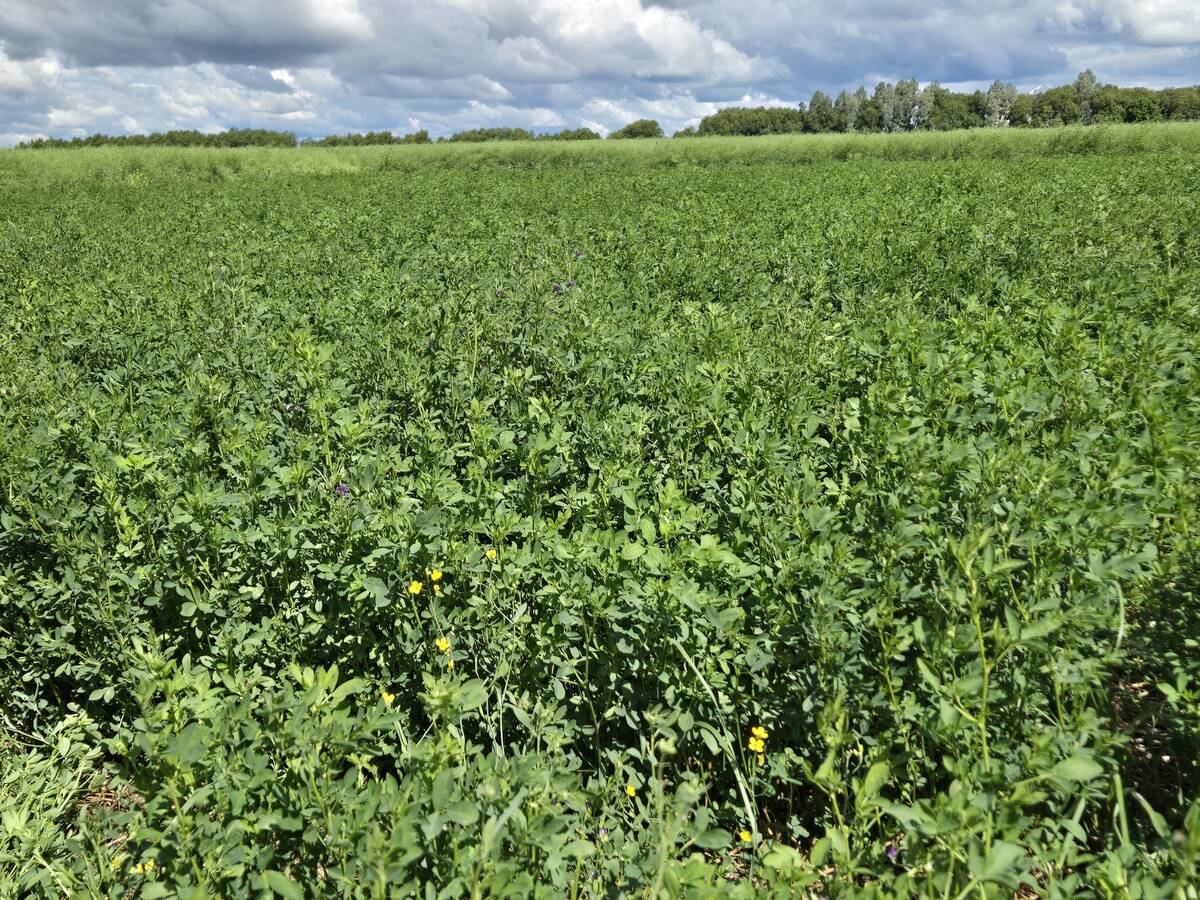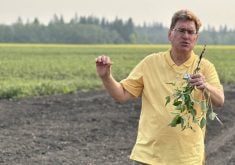SASKATOON (Staff) – A Saskatchewan fish farm got final approval earlier this month for a $74,000 research grant to study the feasibility of producing its own fish meal from locally grown grains and oilseeds.
The National Research Council’s industrial research assistance program, or IRAP, announced Oct. 9 it will cover 44 percent of the $170,000 pilot project at AgPro Grain’s Lucky Lake Fish Farm.
Feed costs now account for more than 60 percent of the farm’s total costs, said general manager John Bielka, who presented the proposal to scientists in June.
Read Also

Manitoba Parkland research station grapples with dry year
Drought conditions in northwestern Manitoba have forced researchers at the Parkland Crop Diversification Foundation to terminate some projects and reseed others.
“This could mean significant savings of up to $400,000 a year for us,” Bielka said, “and if it is really successful it will mean a new market for Saskatchewan farmers.”
The project will study the feasibility of producing a low-cost meal from Saskatchewan-grown canola, flax, high-gluten wheat and barley, sunflower and linseed to feed the farm’s 800,000 trout. The company now trucks feed in from Surrey, B.C.
“Down the road we will look at setting up our own feed manufacturing plant to supply the farm,” Bielka said.
The pilot project will examine the economic feasibility of local production, the quality of feed being developed and new ways to decrease phosphorus levels in fish feed, said Al Bergman, a technical adviser with IRAP.
“With commercial wild fisheries in decline, the availability of fish meal is unstable and prices are always going up,” Bergman said.
Bielka’s team will start by introducing a variety of meal formulations to a test group of 160 trout kept in small tanks indoors, and then advance to a larger scale nine-month trial with caged fish being grown in the Lake Diefenbaker operation.
Producing its own fish feed would bring AgPro one step away from becoming a fully integrated operation, Bielka said. The farm still has to buy fingerlings from an outside source.
















